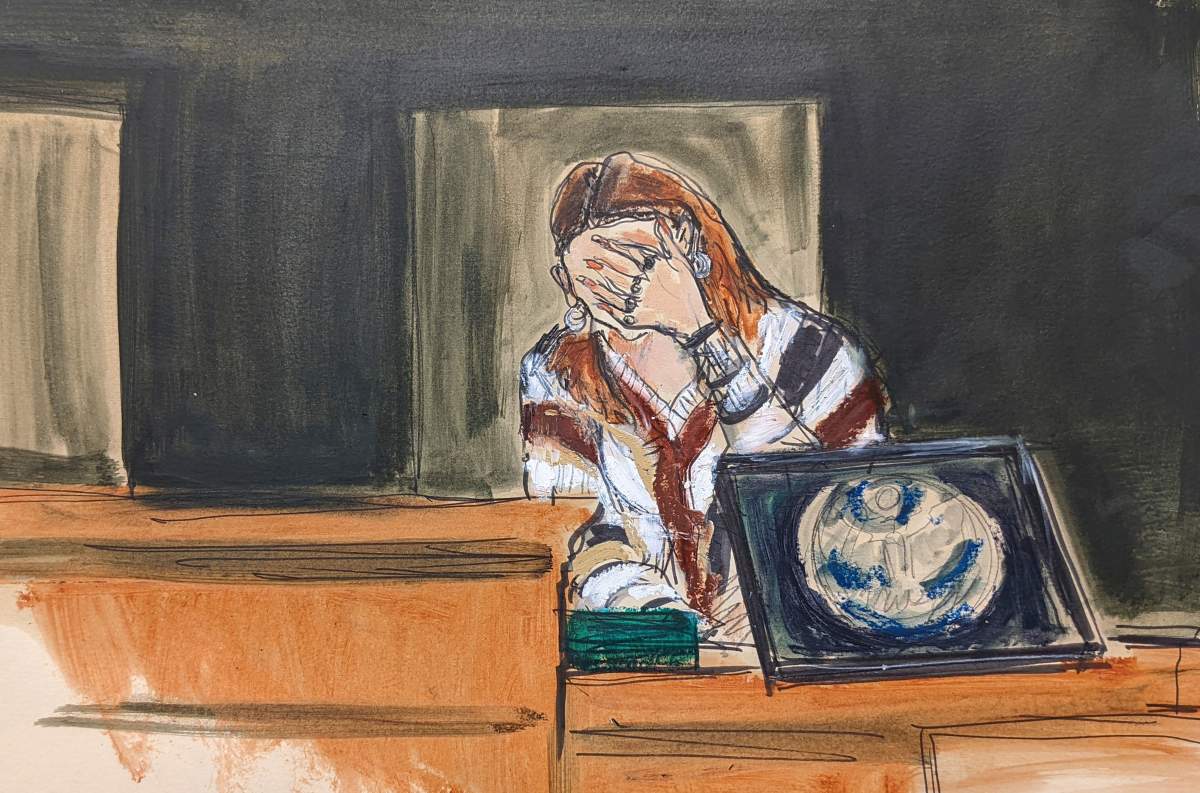Two weeks of emotional, explicit testimony at Ghislaine Maxwell’s sex abuse trial from four women who said the British socialite groomed them as teenagers for deceased financier Jeffrey Epstein could largely undercut the defense’s argument that prosecutors are using Maxwell as a scapegoat, legal experts said.

The women – who say they met Maxwell at different times in places as far flung as Florida, New Mexico and London – all portrayed her as central to the sexual encounters they had with Epstein.
Maxwell’s attorneys did rattle three of the four accusers during tough cross-examination and scored two favorable rulings from U.S. District Judge Alison Nathan, who said that two of the four women prosecutors called victims were old enough to consent at the time of the alleged encounters.
But as the defense prepares to mount its case, persuading jurors that Maxwell was not involved will be difficult, some experts said.
“The government has done a good job of keeping the jury focused on Maxwell,” said Sarah Krissoff, a partner at law firm Day Pitney and former federal prosecutor. “The government will argue that the fact that each victim has a different story – and didn’t exaggerate Maxwell’s role in that story – demonstrates the credibility of those accounts.”
Prosecutors, who say Maxwell recruited and groomed four teenage girls for Epstein from 1994 to 2004, rested their case on Friday in Manhattan federal court.
Maxwell, 59, has pleaded not guilty to eight counts of sex trafficking and other charges. Her attorneys did not reply to a request for comment for this story.
Her attorneys have argued that she is a “convenient stand in” for Epstein, who died by suicide in a Manhattan jail cell in 2019 while awaiting trial on sex abuse charges.

The remarkably similar accounts of the accusers could help undermine that argument, experts said.
For example, a woman testifying under the pseudonym Kate said that Maxwell encouraged her to rub Epstein’s feet when Kate was 17 in London in 1994. Weeks later, at Maxwell’s request, Kate said she gave Epstein a full-body massage that escalated into a sexual encounter.

Get breaking National news
Annie Farmer, now 44, said she and Maxwell gave Epstein a foot massage at the financier’s New Mexico ranch in 1996, when Farmer was 16.
“I watched what she was doing and she instructed me,” Farmer said.
Massages, and Maxwell’s central role in them, came up repeatedly during the women’s testimony.
Jane, who said she was 14 in 1994 when Epstein first abused her, testified that Maxwell would sometimes participate when massages later escalated into sexual encounters.
Prosecutors said the women’s testimony provided them with details which are crucial to prove charges that Maxwell enticed the girls to travel across state lines and in some cases paid them for sexual activity.
Jane said Maxwell assisted her with arrangements when she traveled to Epstein’s home in New York. And Carolyn, a woman who says Epstein abused her starting when she was 14, said she was paid $300 after she massaged Epstein. Once or twice, it was Maxwell who handed her the cash, Carolyn testified.
‘Room full of strangers’
Maxwell’s lawyers argued that the women’s memories were corrupted in the decades since the alleged abuse, and that they were motivated by money.
Three of the four women frequently became agitated when the defense challenged their credibility by pointing to apparent inconsistencies between their testimonies and prior statements made to law enforcement.
Maxwell attorney Laura Menninger grilled Jane about why she initially told the FBI that she did not recall being in a room alone with Epstein and Maxwell or Maxwell ever touching her.
Jane called the notes “incorrect,” but on further questioning by prosecutors cried as she explained why she did not share certain details initially.
“I was sitting in a room full of strangers and telling them the most shameful, deepest secrets that I’d been carrying around with me my whole life,” Jane said.
Later in the trial, Maxwell attorney Jeffrey Pagliuca pressed Carolyn about $3.25 million she received from a compensation fund set up for Epstein victims.
“Why is that being mentioned more than once?” said Carolyn, who later sobbed on the stand.
Jeffrey Cohen, an associate professor at Boston College Law School and former federal prosecutor, said the defense may argue that the accusers’ reactions under cross-examination could indicate “they are simply out for vengeance and clouded by passion.”
But in this case, he said, the jury would likely be “forgiving of the victims’ outrage.”
In a victory for the defense, U.S. District Judge Alison Nathan ruled that Kate and Farmer were old enough to consent at the time of their alleged encounters, meaning any physical contact they had with Epstein was not “illegal sexual activity” as prosecutors alleged in their 2021 indictment.
But the damage to the prosecution’s case from that decision may be limited, experts said.
Neither Kate nor Farmer are the sole alleged victims underlying any of the charges Maxwell faces, meaning that jurors can use Kate and Farmer’s testimony to back up the accounts of the other accusers.
Kate and Farmer “described strikingly similar patterns of behavior on Maxwell’s part,” bolstering Jane’s and Carolyn’s testimony, said Deborah Tuerkheimer, a professor at Northwestern University School of Law.
“In important ways, the testimony of the women who were over the age of consent during the sexual interactions strongly corroborates the testimony of the two alleged victims,” Tuerkheimer said.










Comments
Want to discuss? Please read our Commenting Policy first.